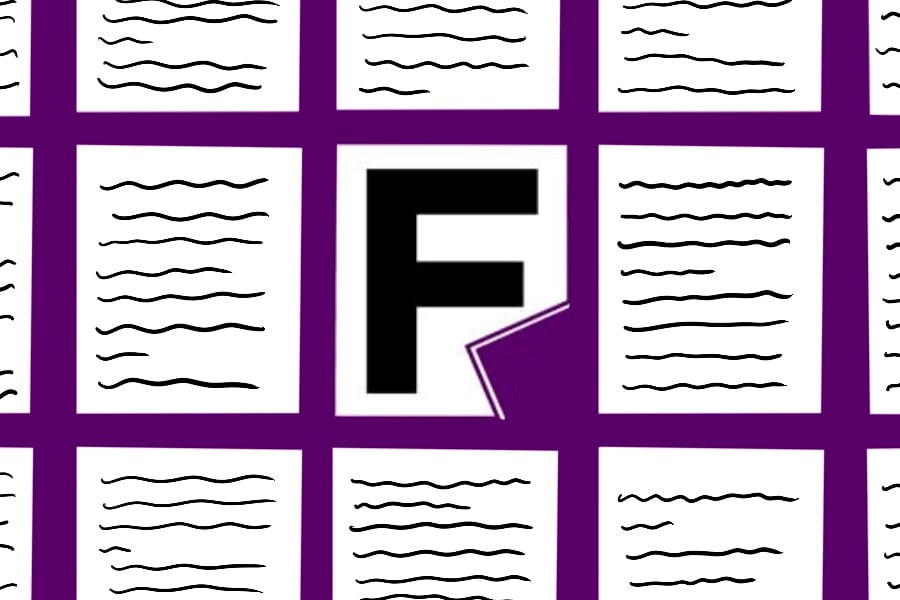Satirical publication NU Flipside explores relationship between comedy and accountability
Northwestern Flipside publishes satirical articles about everything from sports to clubs.
March 4, 2022
Northwestern Flipside’s cardinal rule when it comes to creating campus comedy is “punch up, don’t punch down.”
The satirical publication churns out articles and headlines about everything from sports to clubs, pushing the envelope while calling attention to local trends. In addition to publishing a physical print edition, Flipside hosts a quarterly open-call stand-up show, regularly tweets satirical headlines and posts satirical articles to its website.
Flipside’s cardinal rule means humor should target someone who is already in a position of authority instead of attacking a repressed group. Flipside’s education and accountability chair, Communication junior Jo Scaletty, ensures that rule is reflected multilaterally within the club.
Scaletty hosts regular training and education sessions that emphasize being mindful of historically disadvantaged communities. They are also part of Flipside’s content review process, when readers provide feedback regarding sensitive material.
Despite these precautions, sometimes mistakes slip through.
At Flipside’s fall standup show, a non-member performed a bit where he joked about being attracted to underaged girls. Even though he had signed a Flipside inclusivity standards prior to performing, the leadership team did not know his set contained inappropriate jokes.
Scaletty said they are finding ways to prevent similar incidents, like requiring performers to agree to Flipside inclusivity standards when signing up.
“I also know that that’s not going to be a catch-all, so we are still working to figure out how to be more preventative, but we also have a better system for reacting,” Scaletty said.
Recently, Flipside retracted a satirical Instagram post that used carceral language to describe students relegated to 1835 Hinman for Quarantine and Isolation housing. Upon receiving feedback regarding the post Scaletty held a meeting with the editorial board, and the group decided to retract the article.
Scaletty said Flipside started a headline review process, where a cohort of upper-level editors stays after weekly meetings to ensure that approved pitches match the club’s standards. When reflecting on their early days in Flipside, Scaletty said the club was more homogenous in its representation of marginalized identities.
However, Medill freshman Anita Li said walking into a room “full of white, (male-presenting) people” and being expected to sit in a quiet room to write headlines made her feel like a “fish out of water.” As her quarter progressed, she said returning to more familiar faces and getting a feel for Flipside’s brand of humor improved her experience.
“At the beginning I was like, what’s funny? How do I get people to laugh?” Li said. “Afterward, you’re just like, ‘Here’s fun ideas, let’s see if people laugh, see if people care,’ so I think you get used to the environment.”
Li joined Flipside because she wanted to explore the interaction of journalism and creative writing while being “in a space where people were trying to be funny.” As an Asian American, she said representation for Chinese female comedians is lacking and being in a space with few Asian Americans restricts which jokes she can tell.
After exploring various comedy spaces on campus with different demographic makeups, Li said she found in predominantly Asian spaces, she can tell jokes she normally wouldn’t at Flipside. She said the skit writers room at Celebrasia, an annual celebration typically run by East Asian student associations, is one of these spaces.
“I’m trying to find my voice as an Asian person who’s trying to be funny,” Li said. “Flipside is doing as much as they can to make it as inclusive as possible. (It’s like this) just by the nature of the social systems at play.”
By nature, comedy is hit or miss with different people based on different life experiences, Scaletty said. They recalled cracking up over a joke about queer people at a meeting, while the majority of the room didn’t laugh because they didn’t understand the joke.
Flipside editor and Medill sophomore Allison Rauch said the publication has made progress in improving diversity within NU’s greater comedy ecosystem, but still has room for internal improvements. Rauch said comedy at NU is famous for being exclusive because of tough auditions, club environments and the dominance of straight white men.
“Being funny is one thing, but I feel like you can teach people to write funnier,” Rauch said. “There’s ways you can construct stuff to make it flow a little better, punch a little better.”
She said her perspective as a Medill student adds journalistic experience to the publication and that hard news and satire have similar goals. At Flipside, Rauch said the publication plays an important role in the social circulation of news on campus, as they’re allowed to just say what everyone is thinking.
“What I love about satire, and where I think it’s used to its most powerful degree, is when you’re making social commentary or when you’re kind of punching up at authority figures,” Rauch said.
Email: [email protected]
Twitter: @WhoIsAlexPerry
Related Stories:
— Underclassmen flock to outdoor, in-person student organization fair
— A comprehensive guide to student publications at NU
— “Mee-ow You See Me” comedy show to premiere in Shanley Pavilion












